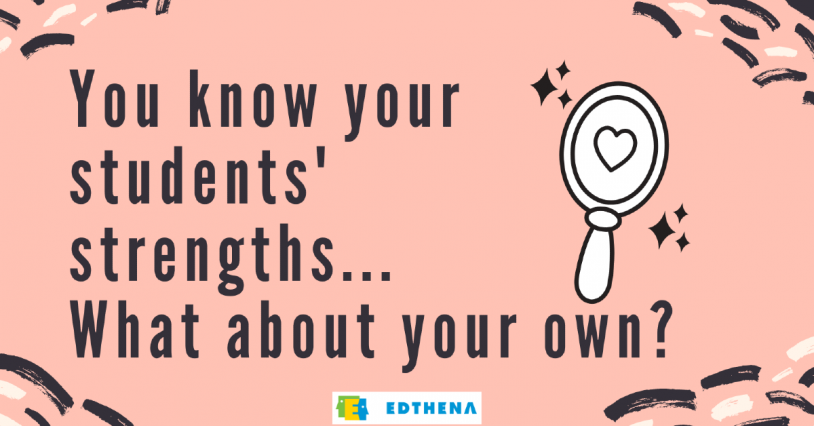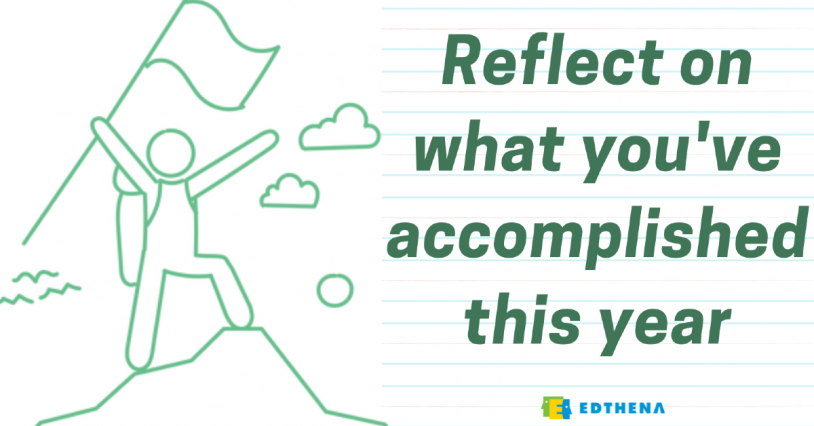Why Teacher Reflection is an Educator’s End-of-Year Secret Weapon

Teaching is complex work and deserves carved-out time for looking back at how practices may have changed over time.
The last couple months of the school year are prime time for teacher reflection. Not sure why or how to get started?
Read on for more about why end-of-year reflections are an educator’s best friend and how to conduct one yourself this year.
3 questions to ask yourself at the end of the school year
Looking at student data, a teacher can often name what students have and haven’t learned. But can you identify what you, as an educator, have mastered and grown in?
That’s where a teacher reflection comes into play!
These three key questions to ask yourself will help you hone in on your strengths and areas for improvement:
- Question 1. How has your classroom experience this year met or differed from what you expected at the beginning of the year?
- Question 2. Over the year, what have you learned about yourself and your professional identity?
- Question 3. What are you most proud of from this past school year and what do you want to be different moving forward?
Why self-reflect? Because you’re worth it
But why spend time with these self-directed queries? If you’re debating whether to bother doing this mental exercise, consider the following benefits.
The end of the school year is often a whirlwind of tasks and emotions for educators. Getting through the last stretch of content, final grades, classroom cleanup, graduation events, and summer fever, not to mention saying “bye” to the students you’ve grown close with over the course of the school year.
Self-reflection helps ease the transition between go-go-go and vacation mode.
Getting to the end of a school year sometimes feels akin to surmounting the summit of an arduous mountain climb … with no one around to see that you’ve reached the peak. But this doesn’t have to feel anti-climactic!
Self-reflection serves as a time to look back on your performance throughout the year (yes, your students’ also, but let’s focus on you): all the successes and shortcomings.
According to Elena Aguilar, “The opportunity to reflect on an experience is professional development — and boosts resilience.”
This is a time teachers deserve for themselves to bask in all that was learned and accomplished.
Moreover, it will set you up for success in the next school year or other future roles.
Feeling inspired? More ways to cultivate your reflection skills
Now that you know what to ask during your teacher reflection and why, commit to more than just skimming through the questions in your head.
Here are some additional strategies to make the most of this time:
- Be intentional and set aside time. Whether it’s an hour or half a day, carve out enough time to truly reflect on each question.
- Pause interruptions. Put your phone on silent mode and keep your laptop open only if it’s helping you with your reflection. The more you can focus your attention on really examining your responses, the more meaningful your take-aways will be.
- Choose your format: alone or group. Do you reflect best on your own or with a partner? Do you want to process your responses by writing them out in a journal for yourself? Or perhaps you gain the most insight when talking aloud with a colleague? Only you know how you work best, but consider the options when planning out this time.
- Gather evidence. You wouldn’t analyze your students’ mastery of content without looking at data in the form of exit tickets or unit assessments. Similarly, you shouldn’t reflect on your own growth without looking at several forms of evidence. Think about what you’ve gathered over the course of the year: student surveys, performance reviews, and videos of your classroom teaching are just some of the possible artifacts you can look back for insights.
Go forth and reflect
The end of a school year is filled with tasks and celebrations. It’s hard to wrap up an experience with a pretty bow, but a teacher reflection will get you close!
Educators, you owe it to yourselves to reflect on all your hard work and accomplishments. End this year more effectively and thoughtfully and you’ll have another reason to celebrate.


